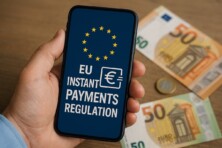TikTok has opened its first European data center, which is based in Dublin.

The company considers the appearance of this functional object as an important event in the context of its significance for the brand’s activities in Europe. The decision to build a data processing center in Dublin was made by the company in order to dispel concerns that its activities are subject to the supervision system of the Chinese authorities.
The firm said that currently the data of European users of the application is being transferred to servers located in Ireland. With these actions, the company confirms its desire to resolve data privacy issues.
TikTok is part of the ownership structure of the Chinese Internet holding company ByteDance. At the same time, the firm claims that throughout its activities, there have never been cases of the transfer of confidential user information to state organizations located in China. These statements have not yet convinced skeptics who are sure that the absence of episodes of interaction with Beijing in the history of the brand in the framework of working with personal data is not a guarantee that such cooperation will not be implemented in the future. In their opinion, at any moment the Chinese authorities can request confidential consumer information from the service for creating and publishing short videos, and, as those who do not trust TikTok’s officially declared position believe, and will receive the data arrays they need.
The video hosting giant, continuing its attempts to eliminate concerns, provides a European security company with access to an audit of cybersecurity controls and personal information protection. TikTok called it the Clover Project, pointing to the main role played by Ireland. Also, the Texas Project is currently being implemented, which is designed to provide tools for monitoring compliance with the privacy policy to American legislators.
In 2023, TikTok faced the most significant consequence of the lack of an acceptable level of trust, which was to restrict the use of the app. The relevant measures on the part of the authorities were taken for reasons of confidentiality and cybersecurity. A number of institutions, including the UK government, the European Parliament, the EU Council, and the European Commission, have banned the installation and use of the app on official devices. A similar practice of legislative restriction has been applied in the United States. For example, the governor of Montana in May signed a law blocking the ability to download app in online stores of digital products for all residents of the region. New York City in August restricted the use of TikTok on government devices.
In the context of solving the problem of ensuring the confidentiality of user data stored by the service for creating and publishing short videos, the potential probability that these arrays of information will be transferred to Chinese government structures is a kind of stumbling block for European officials.
The European and American authorities, when arguing for the need to ban the use of the app, say that Beijing can access the e-mail, contacts, and other means of communication of those who interact with this virtual platform.
TikTok is convinced that the local storage of European users’ data will eliminate these concerns. The company plans to build another data center in Ireland and also intends to implement a project for the construction of an object of a similar functional purpose in the Norwegian Hamar region. The information of more than 150 million European TikTok users will be transmitted through one of these three centers.
TikTok’s vice president for public policy in Europe, Theo Bertram, said that a third-party security company will also be involved in an independent audit of the company’s work in the data center.
Project Clover has instructed NCC Group, a global cybersecurity company, to carefully monitor app data and report any incidents.









